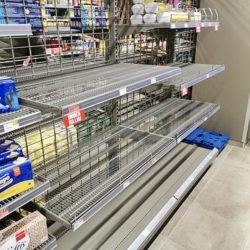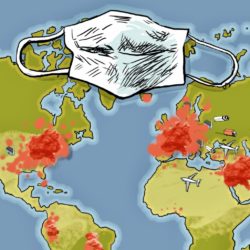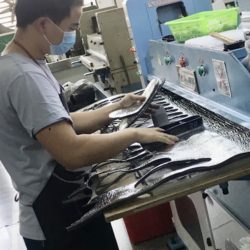‘More domestic production actually increases supply chain vulnerability’

The coronavirus crisis has strengthened the general support for domestic production, but not all companies are convinced that this is the right solution. In fact, high-tech companies in the Dutch region of North Brabant are actively focusing on widening the global geographic spread of their manufacturing activities. According to them, more production in their own country would actually increase their supply chain vulnerability.
When the factories in China closed at the beginning of this year because of the virus outbreak, the effects were felt in supply chains worldwide. According to economists, this signalled the beginning of the end for complex just-in-time production chains. There were growing calls for the onshoring of manufacturing.
However, high-tech manufacturers in Brabant are consciously choosing to spread their production activities worldwide. In the Dutch financial newspaper FD, they are reported as saying that more domestic production would actually make their supply chains more vulnerable in the event of a new global crisis. They prefer to have their own manufacturing networks in Asia in order to limit the risks.
For example, Eindhoven-based Additive Industries, which produces complex 3D metal printers, would like to open a facility in China in the long term from the point of view of risk diversification. “It’s not easy for us to switch to other suppliers. It takes a long time for them to reach our production standards,” says CEO Daan Kersten. “We could ask our suppliers to stockpile more, and we could also produce more for stock ourselves, but that’s expensive.” Kersten would rather set up a second manufacturing and supply chain in China. “Because we’re now seeing that production has re-started in China, while things are still difficult for us here.”
Protection against political surprises
The NTS-Group – a supplier to high-tech companies that is likewise from Eindhoven – already has factories all over the world as a way of shielding itself from political ‘surprises’, such as the trade war between the USA and China. As a result, the company was able to react quickly last year when it was suddenly no longer allowed to ship deliveries directly from China to an American customer.
“For us, the risk still lies in the unpredictability of this pandemic,” says CEO Marc Hendrikse in the FD. “We can’t build up inventory because we work for an industry with complex products produced in low volumes. If you do try to build up inventory, you always have the wrong products in stock.”
In addition, according to Hendrikse, NTS is already running at maximum production capacity. “We supply the medical and semiconductor industries, which are both booming in this crisis. We were barely able to meet the demand even before the pandemic started, and then on top of that our production capacity was reduced because so many employees had to stay at home.”
Promoting domestic production
However, other companies elsewhere in the supply chain are experiencing things differently. For example, since the coronavirus crisis, Betech from Hoogeveen has emphatically promoted the slogan ‘Made in Holland’. Arjan Schuinder, Director of Betech – which supplies parts to the NTS-Group and other companies – says he is receiving more and more orders from manufacturers who are seeking suppliers in their own region.
According to Rolf Bos, Senior Manager Value Chain Transformation at PwC, this is a psychological response to the crisis and, in time, the need for efficiency will gain the upper hand again. He advises companies to ask themselves what reducing their biggest risks is worth to them. “It costs a lot to produce close to home, spread your manufacturing activities geographically or hold stock. But shipping everything around the world is expensive too.”










